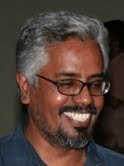covering death
Coverage of Death, Deathly coverage
The way we treat the dead gives crucial insights about the life and 'culture' we live. It is about the way we live and perceive life. Some deaths get celebrated even by the enemies, while some others are ignored, unseen or shrunk to the coffin of an obit column.
Obituaries in fact tell us a lot more about ourselves than the dead. They tell us about how, why and where we are; it is an unconscious commentary upon our sense of history, and so, of our present. In these times of 'the excess of the present and the presence of excess' in all areas of life, when media decides what will occupy the public mind and space, the way we treat death and the dead give us a lot of painful and sad insights about ourselves (or, to put it more harshly, our dead lives).
What does the all-too-sudden or 'much-awaited' exit of a person/ality mean to us, and to a society? Every death is an end of the world, in a sense. It is a very painful personal experience for the dear and near. For them, it is a heart-wrenching experience entangled with too many things – memories, emotions, and experiences, even certain smells, touch, objects and spaces. The event or the phenomenon of death is made all the more unbearably enigmatic for our sheer inability to imagine the sudden absence of someone who was with us till now. As for the milieu or society he/she lived in, it may be the exit of a chunk of history, a whole biography marked and scarred by time, a way of life, a vision, a voice, a friend, guide or philosopher.
Inevitably, every death forces us to confront the present, to make a comparison of values and worldviews, to take stock of ourselves and the life we live.. Every death forces us to ponder about transience and so, about our 'worth', raison de'tre, or, in other words our own death. When we watch death live on television, we are morbidly watching our own death, again and again, its cold eyes staring back at us.
So, mourning for the dead is something very near to our core and our worldviews; it is all about how we look at life, the respect we give to ourselves, and our sense of proportion and history.
The sad demise of PKA Rahim and MN Vijayan bring such dark thoughts to one's mind. The former is forgotten, almost invisible, and unpardonably sidelined in the media, while the death of the other is 'celebrated'. Both equally sickening and depressing. Both equally unfair and ungrateful to the great souls they were. The question whether the proliferation of media would further enrich our understanding of the world by including more and covering more areas of our life and times, is answered here with a deafening NO. Totally drowned in the present, here, media proved itself to be an instrument of forgetting rather than remembering. For media, PKA Rahim, a Radical Humanist and avant garde publisher, was not worth its attention – it didn't know him nor did it bother to. On the other, Vijayan's death was an easy occasion to rake the dirt of the present they splurge in.
This kind of selective memory should force us to interrogate our propensity for mindless celebrations, the compulsive need to create and demolish idols, and to en-close our world and the public sphere to the present and the immediate. In effect media creates a sterile atmosphere sans history, and so, closed to any sense of connection with the all-too real struggles of our own life and times. It prods us to examine our own fears and fantasies about death, and more crucially, our inability to mourn, or, our inability to give the dead a decent burial.
What Ambrose Bierce (1842-1914) said in his Devil's Dictionary, has an ominously contemporary ring with regard to our media and its deathly coverage:
Done with the work of breathing; done
With all the world; the mad race run
Through to the end; the golden goal
Achieved – and found to be a hole!
Ignoble end to all the strife!
To lie as ne'er we lay in life,
With legs uncomfortably straight
And rigid fixity of pate,
Pierced through and through by worms that live
To make with needless skill, a sieve
Our of our skin, to sift our dust.
Vain labour! at the last they just
Bolt us unbolted till they bu'st!
Labels: m n vijayan, television


1 Comments:
Rightly said Sir.
Post a Comment
Subscribe to Post Comments [Atom]
<< Home